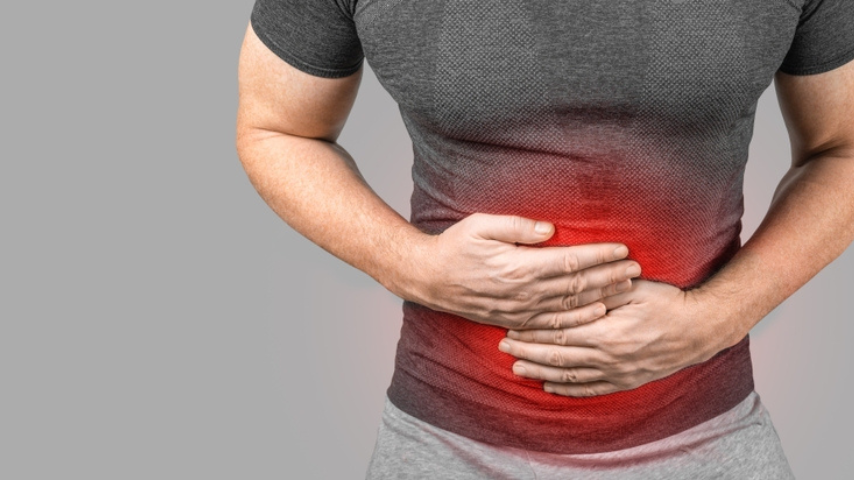Gastric Problem Causes, Symptoms & Treatment

What is gastric problem? Gastric problems are digestive issues affecting the stomach, causing discomfort and pain during the digestion process. Gastric illnesses include a variety of discomforts related to our digestive system. Some of the common issues include gastritis, peptic ulcers, gastroesophageal reflux disease, gastrointestinal bleeding, lactose intolerance, and so on. If not fixed on time it can have a major effect on an individual's well-being. These gastric problem causes can be a result of a variety of triggers. That includes food habits, lifestyle decisions, infections, and underlying medical diseases.
Therefore, it is important to identify the reason for gastric problem. So that you can find an effective gastric problem solution. In this blog we will delve into the complexities of gastric problem causes, symptoms, and treatment available. So, stay tuned till the end of the understand how you can improve the overall quality of life.
Causes and risk factors of Gastric Problems
To effectively address how to cure gastric problems and manage them. It's important to comprehend their underlying causes and associated risk factors. These gastric problem causes span a range from mild discomfort to severe conditions. This plays a pivotal role in both prevention and management strategies. By recognizing the risk factors linked to severe gastric problems, individuals gain the knowledge needed to make informed decisions and take proactive measures towards prevention and treatment. Adopting a balanced lifestyle, seeking medical guidance, and implementing stress management techniques are effective ways to reduce the risk of severe gastric issues and enhance digestive health and overall well- being.
We will delve into the diverse risk factors related to gastric problems, including more severe cases. We'll also explore potential solutions aimed at alleviating gastric discomfort and addressing issues related to gas. First, let's delve into the root causes of gastric problems, followed by various treatments. Prior to that, we will examine the factors of the symptoms and causes.
1. Dietary Habits:
One of the leading culprits behind gastric problems lies in our dietary choices. Consuming excessive amount of spicy, fatty, or heavily processed foods can irritate the stomach lining, leading to discomfort and indigestion. Furthermore, irregular meal timings and overeating can disrupt the natural digestive process, intensifying the gastric symptoms.
2. Bacterial Infections:
Certain bacterial infections, particularly Helicobacter pylori, are known to trigger gastric issues. These bacteria can colonize the stomach lining, causing inflammation, gastritis, and even peptic ulcers. Effective treatment often involves eradicating these infections through a combination of antibiotics and acid-suppressing medications.
3. Lifestyle Factors:
Our modern lifestyles can contribute significantly to gastric problems. Chronic stress, lack of physical activity, and inadequate sleep can disrupt the delicate balance of the digestive system, leading to symptoms like bloating, gas, and indigestion.
4. Medication Effects:
Some medications, including non-steroidal anti-inflammatory drugs (NSAIDs) and certain pain relievers, can irritate the stomach lining, potentially causing gastric problems. It's necessary to use such medications under medical guidance and consider alternatives if they exacerbate digestive discomfort.
5. Underlying Medical Conditions:
Several medical conditions can manifest as gastric problems. Gastroesophageal reflux disease (GERD) leads to chronic acid reflux, causing heartburn and irritation. Inflammatory bowel diseases (IBD) like Crohn's disease and ulcerative colitis can also affect the digestive tract, leading to symptoms that overlap with gastric problems.
6. Age and Genetics:
Advancing age and genetic predisposition can increase the susceptibility to gastric issues. Regular health check-ups and early intervention are important, especially for individuals with a family history of gastric problems.
Symptoms Of Gastric Problem:
Gastric problems how to cure gastric problem can give rise to a wide range of discomforting symptoms in the digestive system. Being able to identify and understand these symptoms is pivotal for timely diagnosis and effective management. Understanding the symptoms of gastric problems empowers individuals to detect potential issues and take proactive steps toward finding relief.
By making adjustments to one's diet and lifestyle and considering medical intervention, individuals can effectively manage gastric symptoms. This can lead to improved digestive health and build quality of life. It is advised to seek the expertise of a medical professional, potentially within a specialized Gastroenterology Hospital. This step is crucial for precise diagnosis and personalized treatment. In the subsequent section, we will delve into strategies for addressing gastric problems at home, encompassing a spectrum from mild to severe manifestations, and we will explore avenues to attain relief.
1. Abdominal Pain and Discomfort:
Persistent abdominal pain, whether dull, sharp, or cramping, often indicates gastric issues. The pain's intensity can vary, spanning from minor discomfort to intense agony.
2. Bloating and Gas:
Excessive gas accumulation in the stomach leads to bloating, causing the abdomen to feel distended and uncomfortable. Frequent belching and flatulence are also common indicators of gas-related gastric problems.
3. Indigestion and Heartburn:
Indigestion, marked by a feeling of fullness, discomfort, and possibly nausea after meals, is a hallmark symptom of gastric problems. Heartburn, characterized by a burning sensation in the chest and throat, frequently accompanies indigestion and can be a sign of gastroesophageal reflux disease (GERD).
4. Nausea and Vomiting:
Gastric problems often trigger feelings of nausea or lead to vomiting. Persistent vomiting and an inability to retain food may indicate more severe gastric issues.
5. Changes in Bowel Habits:
Gastric problems can influence bowel movements. Diarrhea, constipation, or alternating between the two may signify underlying digestive issues.
6. Loss of Appetite and Weight Loss:
Continued gastric problems can result in a decreased appetite, potentially leading to unintended weight loss over time.
7. Severe Symptoms:
In some instances, severe gastric problems can give rise to more concerning symptoms, such as blood in vomit or stool, difficulty swallowing, and intense pain. These symptoms warrant immediate medical attention.
Foods And Home Remedies That Can Cure Gastric Problem:
It's not always necessary to seek medical attention to treat gastric issues. Some foods and natural remedies can provide comfort and promote digestive health. Including these foods and natural therapies in your diet can help to promote overall digestive health. Moreover, it provides natural relief
from gastric issues cost effectively. However, if your symptoms persist or worsen, it's essential to consult a healthcare professional, especially if you have severe gastric trouble. A combination of dietary adjustments, home remedies, and medical guidance. It can pave the way toward a healthier and more comfortable digestive experience. In this section, we explore a range of dietary choices and home remedies that can help alleviate gastric trouble and contribute to effective gastric problem treatment.
1. Ginger:
Ginger is a natural remedy known for its anti-inflammatory properties. It can help soothe the digestive tract, alleviate bloating, and reduce nausea.
2. Peppermint:
Peppermint has muscle-relaxing properties that can aid in reducing gas and bloating. Peppermint tea or peppermint oil capsules are often used to ease gastric discomfort.
3. Plain Yogurt:
Yogurt containing live cultures (probiotics) can support a healthy gut by promoting the growth of beneficial bacteria. This can aid in digestion and alleviate gastric problems.
4. Fennel Seeds:
Chewing on fennel seeds or preparing fennel tea can help relax the gastrointestinal tract, ease bloating, and reduce flatulence.
5. Chamomile Tea:
Chamomile tea has anti-inflammatory and calming properties that can soothe an irritated digestive system, reducing symptoms of gastric trouble.
6. Banana:
Bananas are easily digestible and can help in relieving acid reflux. They also contain fiber, which can promote regular bowel movements.
7. Rice and Plain Crackers:
When experiencing gastric trouble, opting for bland foods like plain rice or crackers can help provide a gentle source of nourishment while giving your digestive system a break.
8. Avoid Trigger Foods:
Identify foods that exacerbate your gastric trouble and avoid them. Common triggers include spicy foods, carbonated beverages, and fatty or fried foods.
9. Mindful Eating:
Eating slowly and mindfully can aid digestion by allowing your body to process food more efficiently and reducing the risk of overeating.
10. Stay Hydrated:
Adequate hydration supports digestion and helps prevent constipation, a common contributor to gastric trouble. Sipping on warm water throughout the day can aid digestion by promoting the movement of food through the digestive tract.
Conclusion
Gastric problems can significantly impact our daily lives, and understanding their causes, symptoms, and treatments is critical for effective management. By applying strategic approaches like healthy diet and positive lifestyle changes. You can bring the gastric issues under control. Seeking professional care, especially in severe cases, ensures accurate diagnosis and tailored treatment plans. Gleneagles Hospital in Parel, Mumbai, offers complete care for gastric concerns. Their team of experienced gastroenterologists and advanced diagnostic tools allow for accurate diagnosis and personalized treatment plans. Additionally, the hospital provides a range of minimally invasive procedures and surgical options for more complex cases, ensuring patients receive the best possible care for their gastric issues.











